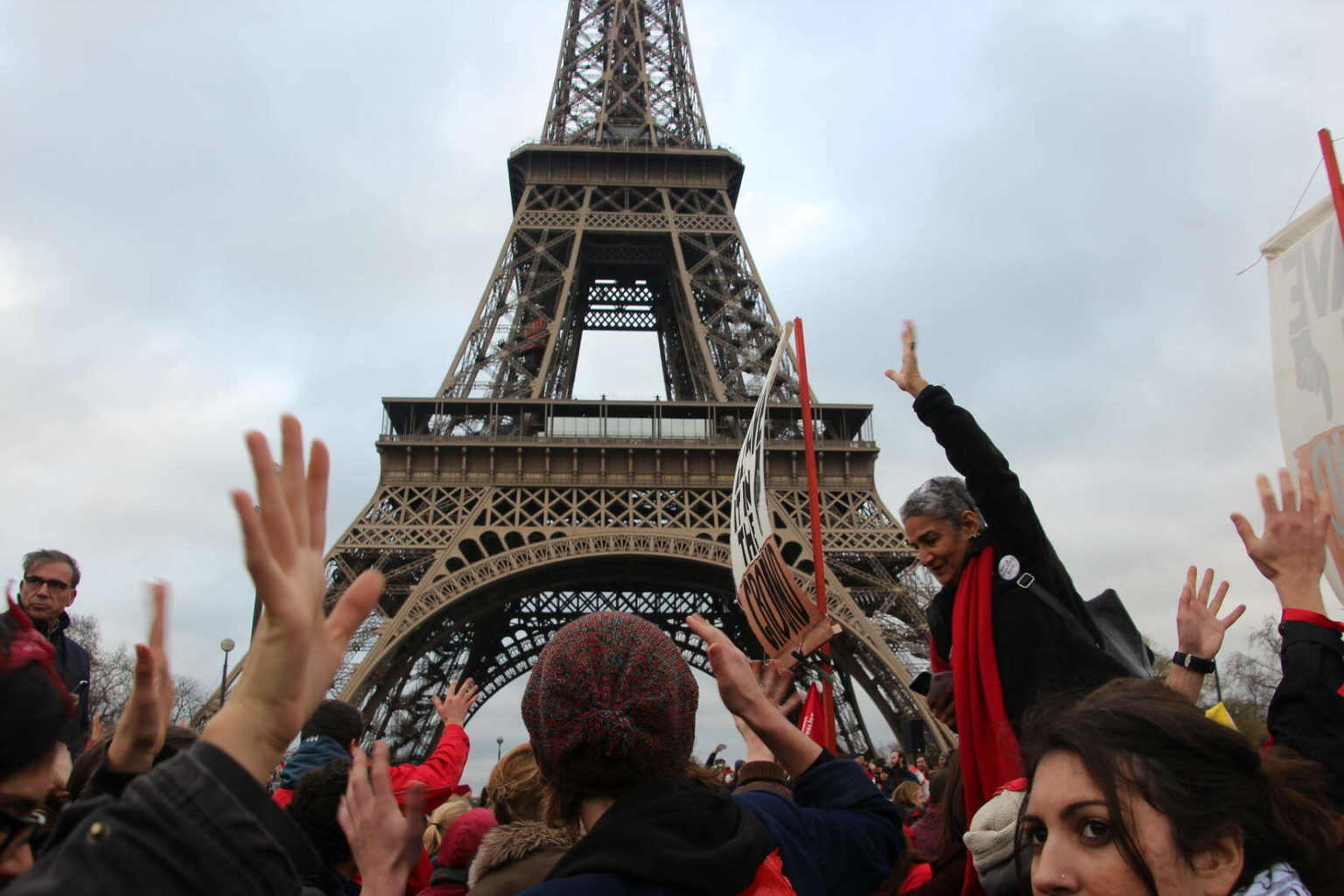A French court this week issued what climate campaigners are calling a “historic decision” in the fight to hold national governments accountable for insufficient action to address the climate crisis.
The decision finds that France in recent years has exceeded its “carbon budgets” — the upper limit of allowable carbon emissions to help keep warming below 2 degrees Celsius (3.6 degrees Fahrenheit).
The French government must now justify within the next three months how its refusal to take more stringent measures to curb emissions in line with the Paris Agreement puts the nation on track to meet its 2030 emissions reduction target.
This is the first court ruling of its kind in France — and it could influence other ongoing climate lawsuits in the country. The decision is the latest in a string of successful legal challenges to European governments’ inadequate policies to tackle the climate crisis, including in Ireland and most famously in the Netherlands, which was the first time a court anywhere in the world ruled that a national government has a legal duty to prevent dangerous climate change.
While the decision this week in France does not order the French government to take more aggressive climate action (as was the case with the Dutch government), it is one step away from that. If the court finds the French government’s justification for its less-ambitious targets insufficient, it could order the nation to take action to rapidly slash emissions. France ranks among the top 20 carbon polluters in the world, according to 2018 data analyzed by the Union of Concerned Scientists.
Breaking news ! France’s top administrative court gave the government a 3-months deadline to show it is taking action to meet its commitments on global warming.
This is history.#ClimateJusticeNow #ClimateJustice https://t.co/8UOl0VP934— Greenpeace France (@greenpeacefr) November 19, 2020
France’s highest-level administrative court, called the Conseil d’Etat (Council of State), issued its ruling on November 19. It’s the result of a climate lawsuit brought against the French federal government by a coastal community in northern France that’s particularly vulnerable to climate impacts.
That community, Grande-Synthe, filed its case in early 2019 following a rejection of the city’s request submitted to the French president and government urging additional actions to meet France’s climate targets, such as prioritizing climate policies and prohibiting fossil fuel expansion or other actions boosting greenhouse gas emissions.
The cities of Grenoble and Paris — home of the landmark international climate accord known as the Paris Agreement — supported Grande-Synthe’s lawsuit, as did several nongovernmental organizations including Oxfam France, Greenpeace France, and Notre Affaire à Tous. These organizations are also currently suing the French government in a separate but related climate case that they call the “Affaire du Siècle” or “case of the century.” And the French supreme administrative court’s decision in the Grande-Synthe case is “already a first step towards victory” in that other case, said Greenpeace France.
This week’s decision recognizes a legal duty for the government to meet its climate targets. “This is a real revolution in law,” Notre Affaire à Tous continued, adding that climate laws “have so far been viewed by successive governments and parliaments as vague promises.” With this new ruling, the group said, it imposes on France “an obligation … to implement concrete and effective measures to achieve these objectives.”
BREAKING: the Supreme Administrative Court orders the French govt to respond within 3 months regarding its failure to take more ambitious GHG emissions reduction measures to address climate change, finds persisting noncompliance with existing emis targets.https://t.co/ZsI1VtJZ38
— Sam Varvastian (@SamVarvastian) November 19, 2020
France has set a national target, per its obligation under the Paris Agreement, to reduce its greenhouse gas emissions 40 percent (below 1990 levels) by 2030. This goal is established in national law, and the French government has adopted policies outlining emission reduction paths, consisting of emissions “ceilings” or budgets that periodically tighten, further restricting emissions limits.
But according to the ruling from the Conseil d’Etat, France is currently not on track to achieve its 2030 goal and has not complied with its own interim limits in the last several years. And this year due to the pandemic, the country, by decree, postponed further emissions reduction efforts.
As a press release from the court explains, “while France has committed itself to reducing its emissions by 40 percent in 2030 compared to 1990 levels, it has, in recent years, regularly exceeded the ‘carbon budgets’ it had set itself.” According to the court, between 2015 and 2018, France reduced emissions on average by just one percent annually — that’s less than the 2.2 percent annual cut France set out through its “budget” for that time.
The court is now demanding answers from the government.
“Conseil d’Etat is requesting the Government to justify how the reduction path to 2030 can be respected without stricter measures,” the press release states.
The court’s decision also notes that it is prepared to order the French government to take additional measures to ensure France achieves its 2030 target, should it find the government’s response unsatisfactory.
“From now on,” Greenpeace France said, ” the government will finally have to justify the concrete measures on the climate emergency. No more talk!”
Main image: Paris marches for climate justice as the United Nations climate summit, COP21, concludes with the historic Paris Agreement, December 12, 2015. Credit: John Englart, CC BY–SA 2.0
Subscribe to our newsletter
Stay up to date with DeSmog news and alerts







